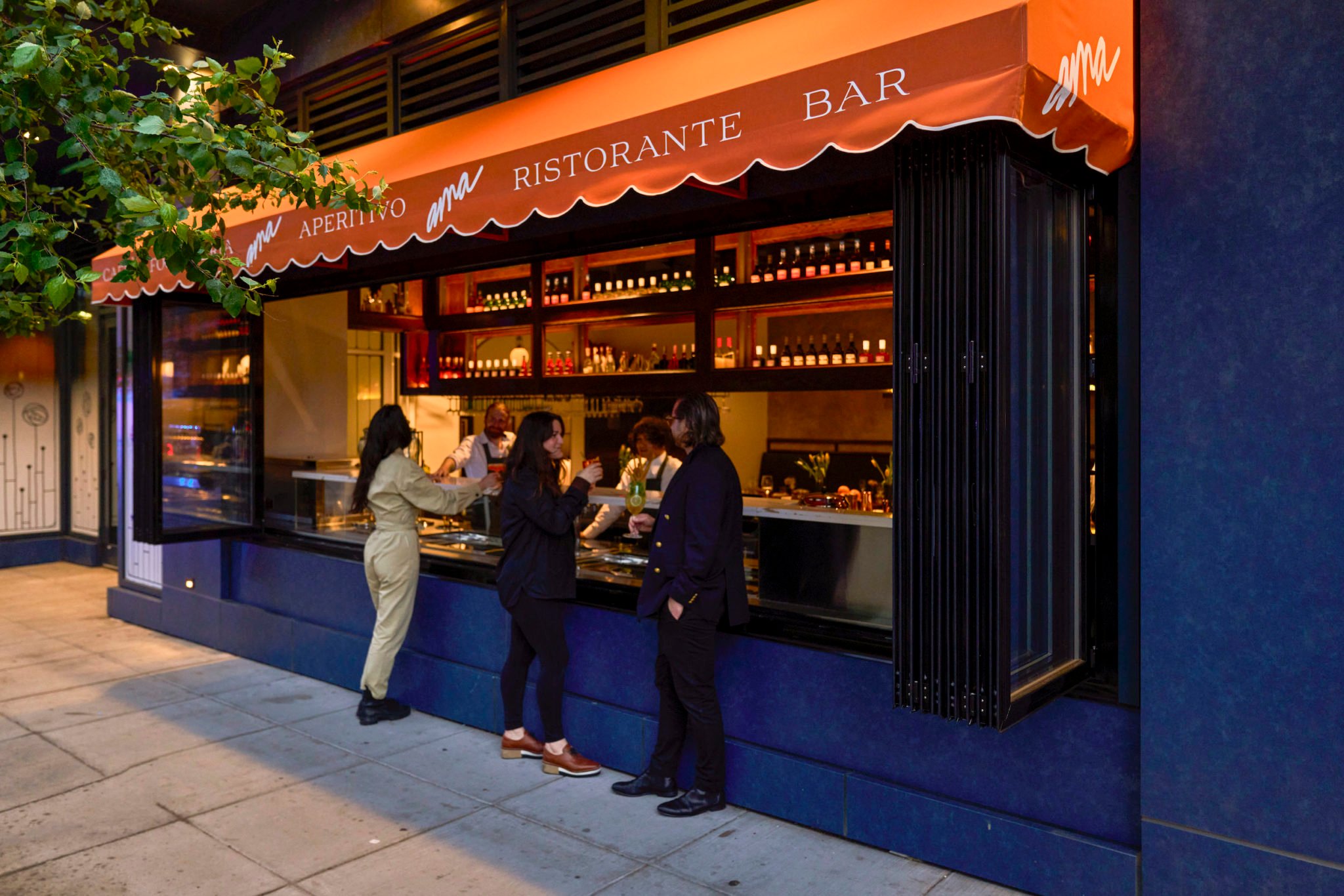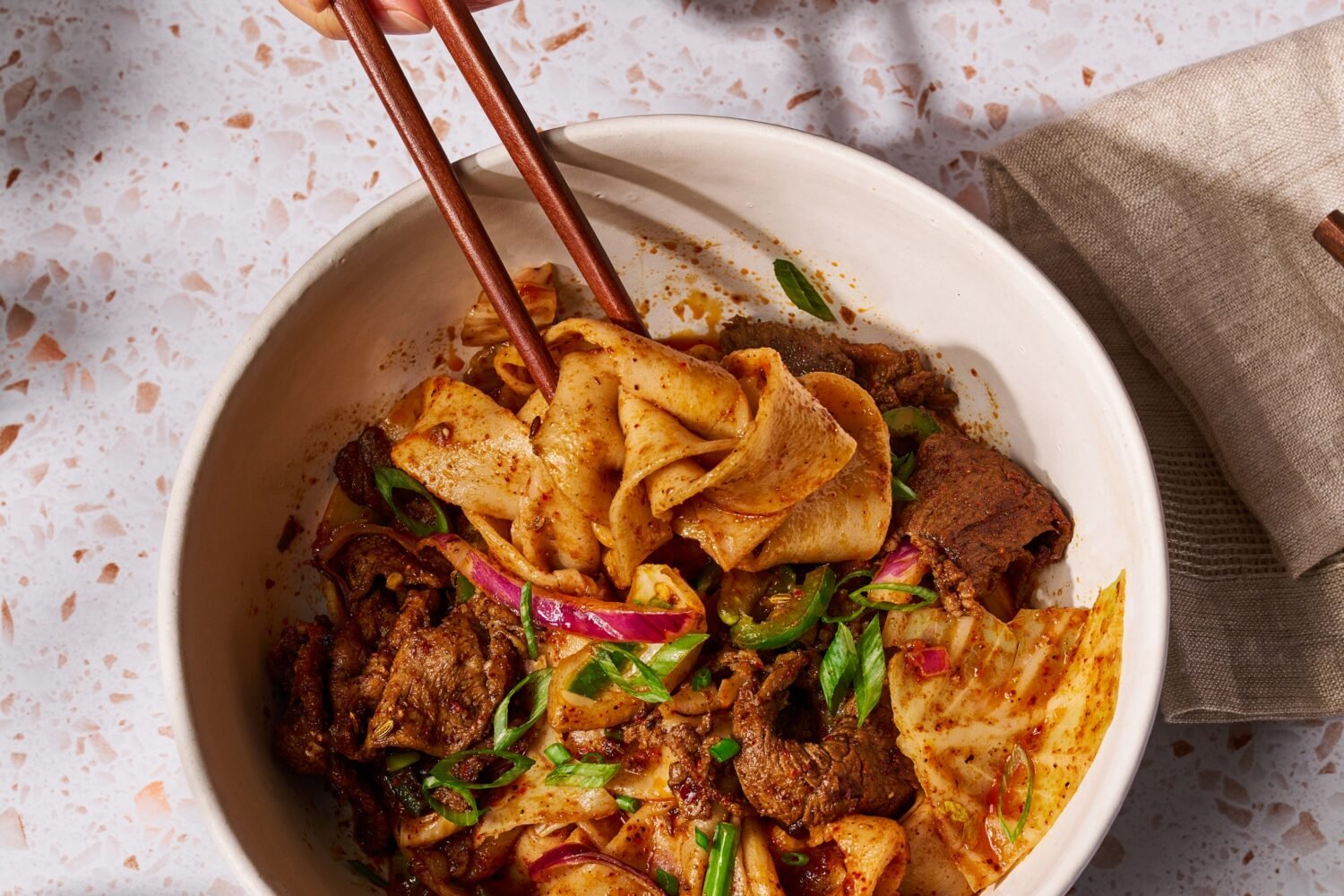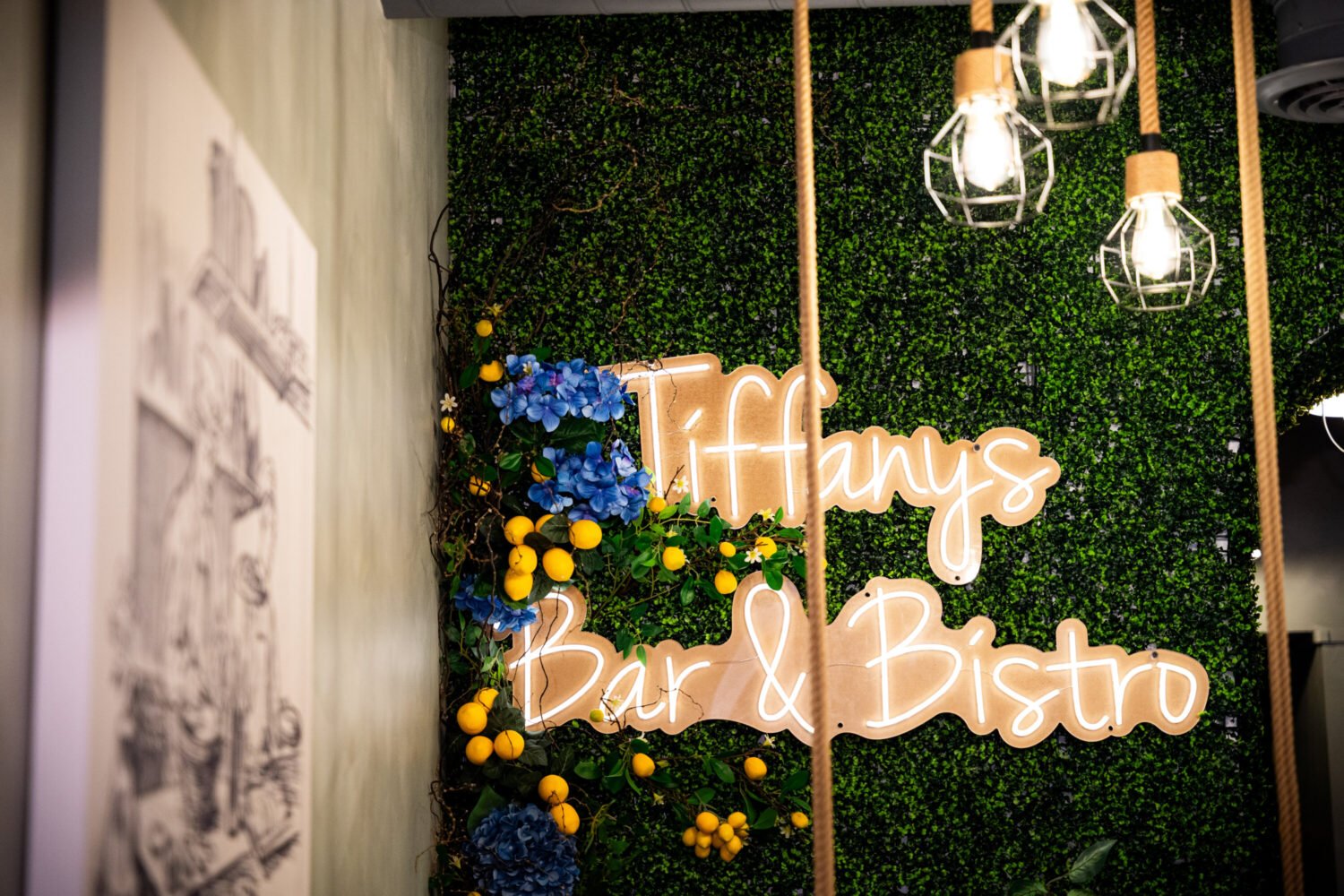About Restaurant Openings Around DC
A guide to the newest places to eat and drink.
At northern Italian restaurant Ama, chef and co-owner Johanna Hellrigl knows the guy who makes the Ligurian olive oil used in her focaccia. She works with local Lancaster Farm Fresh co-op to custom grow Genovese basil for a traditional trofie pasta with pesto. And you won’t find any refined sugar in the kitchen–sucanat sweetens her gluten-free tiramisu, while her husband and co-owner, barman Micah Wilder, employs it for housemade chinotto soda in lieu of carrying Coke. The all-day restaurant, an homage to the wholesome cooking of Hellrigl’s Italian family, opens June 4 in Navy Yard.
“Healthy does not have to mean green juices and chia nut seed balls and whatever the wellness industry is selling,” says Hellrigl, formerly chef of Doi Moi and Mercy Me. “The way my dad cooked, it was a lot of just slow food… I want to go back to the roots.”
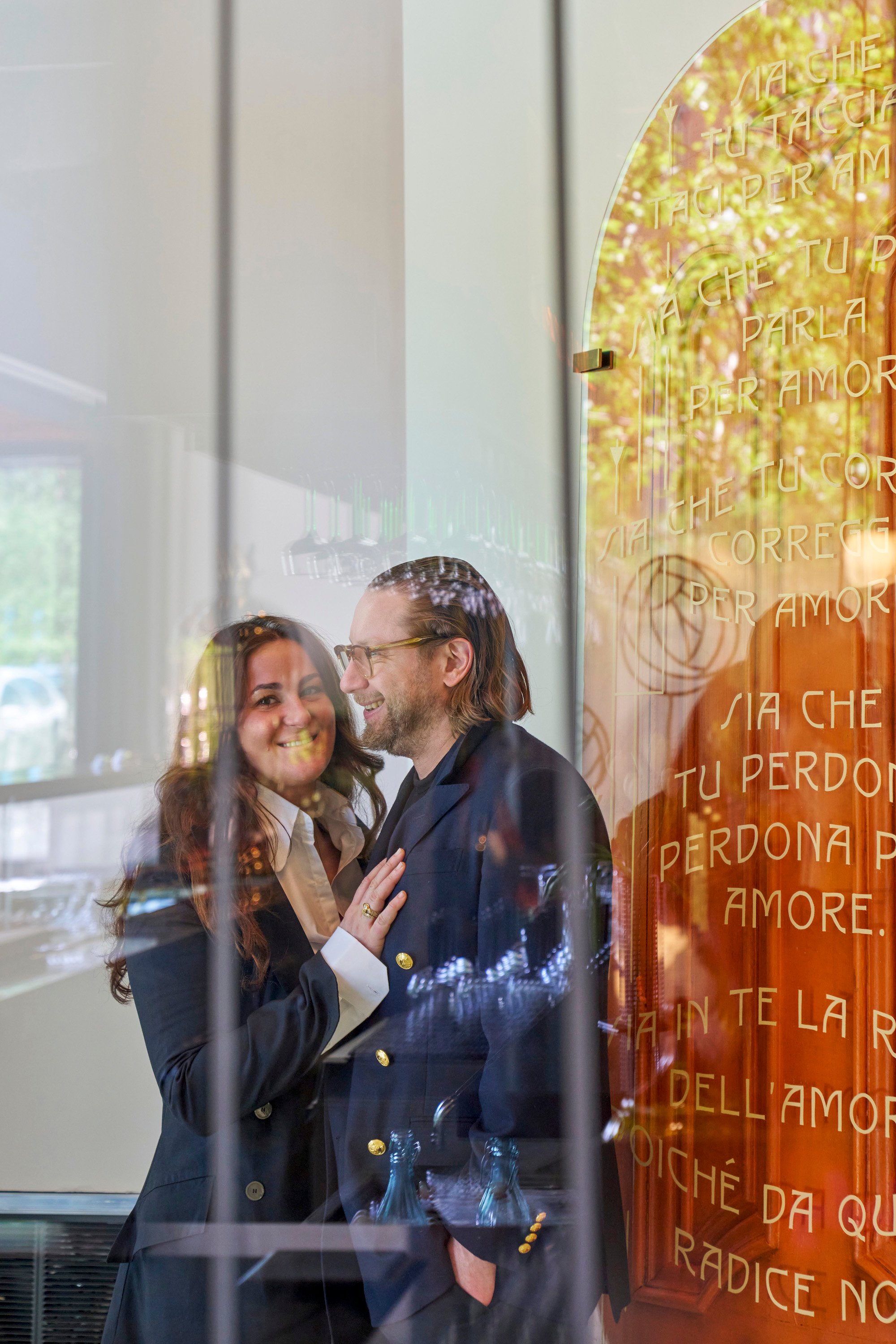
The menu draws from Liguria, the northern coastal region of Italy where Hellrigl’s mom hails from, and her chef dad’s former home of Alto Adige on the country’s northern border with Austria. But Hellrigl’s approach is also driven in part from her own health struggles after the birth of her son in early 2021. She got Covid near the end of her pregnancy—before vaccines were widely available—and then developed a liver condition called cholestasis, which led her to be induced early. “My body wasn’t ready, and so I actually labored for 92 hours, and then it turned into a C-section,” she says. “Because of all the interventions that they did, I was on serious rounds of antibiotics.”
When she continued to feel poorly postpartum, she says doctors dismissed her symptoms. Fed up, Hellrigl found naturopath doctors and changed her diet—”healing my gut, taking care of my health using food as medicine.” She subsequently got certified in integrated nutrition with the goal of learning how to nourish others with healthful foods as a chef. “I want to go back to you knowing you can trust me and that you’re not going to wake up in the middle of the night and need to chug a glass of water because the food was so salty—and not great quality salt.” (She exclusively uses mineral-rich Celtic sea salt.)
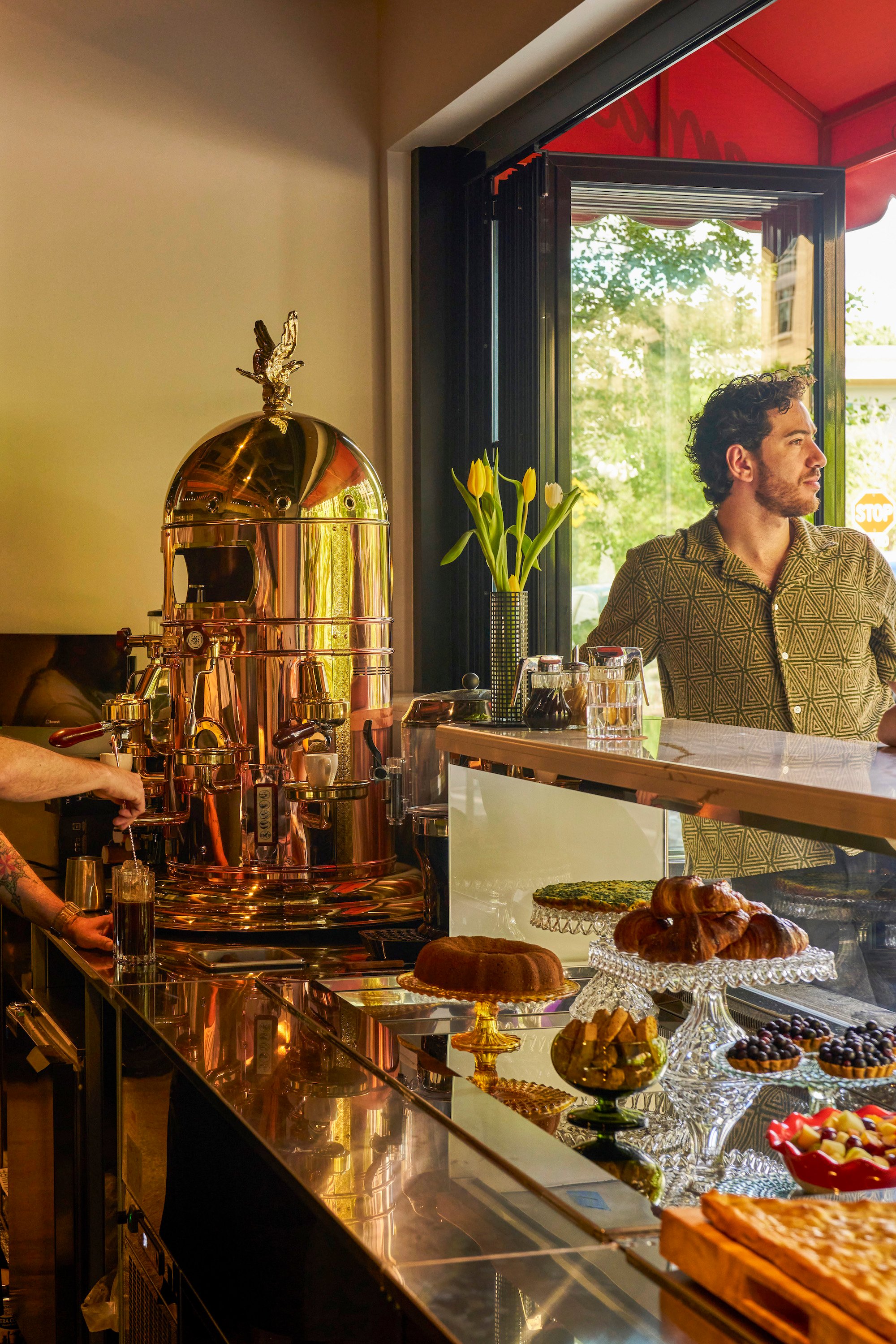
The restaurant will open in the mornings with rotating “breakfast cakes” (think not-too-sweet polenta cake or buckwheat carrot cake), frittatas with dandelion greens, and cornetti—croissant-like pastries made here with spelt flour and a hint of orange, then filled with apricot jam or vanilla pastry cream. The restaurant has also imported a gold-domed Elektra Belle Epoque coffee machine, and they encourage people to enjoy their espressos the Italian-way, standing at a sidewalk counter. Ama is the first in DC to carry beans from Caffe Vergnano, the oldest coffee roaster in Italy.
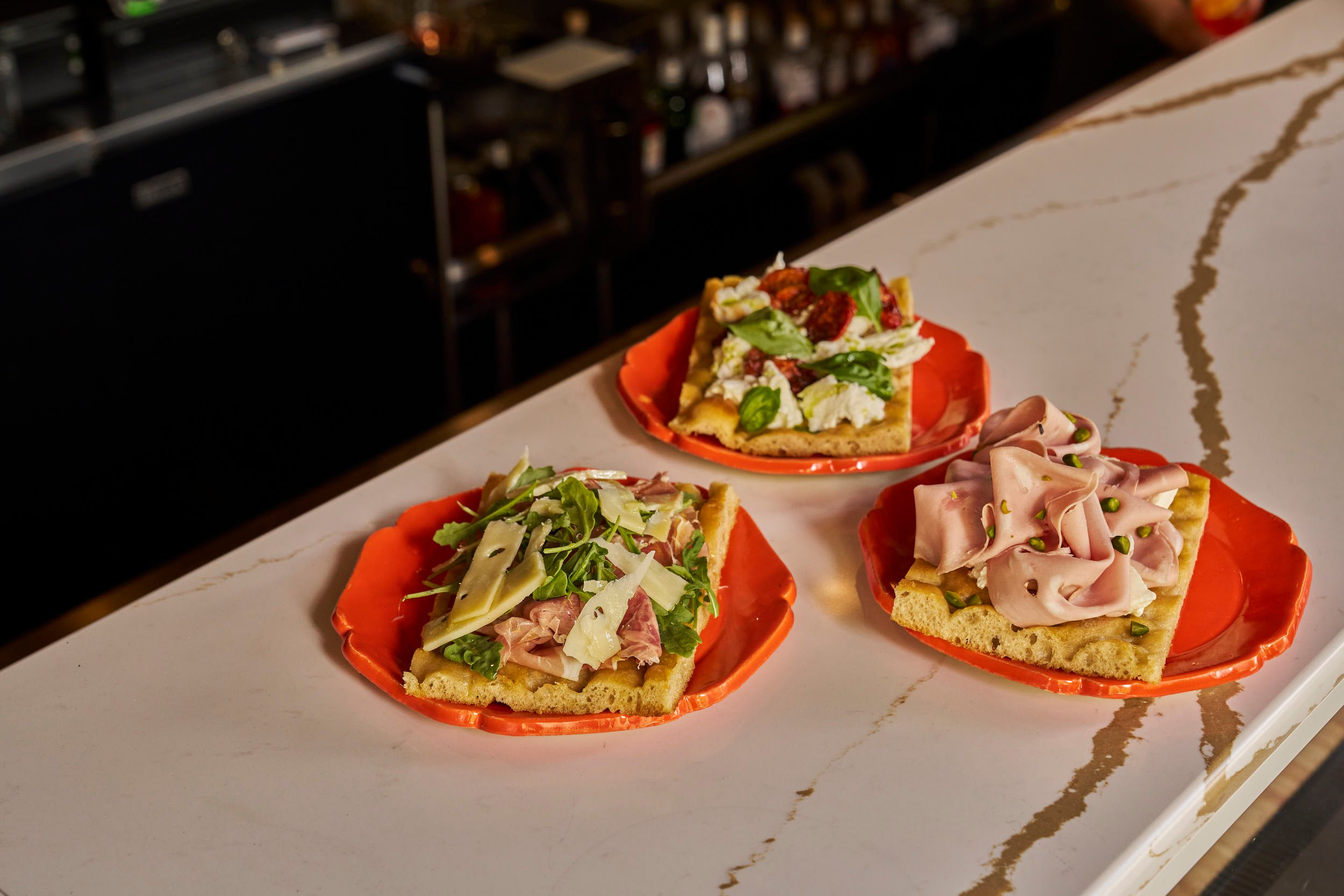
During the early days of the pandemic, Hellrigl became known for her sourdough, giving away hundreds of starters via Instagram. At Ama, she’s making a version using ancient grains, which will be served with anchovies and for crostini with chicken liver pate or olive tapenade. The restaurant also bakes a thinner, traditional Ligurian focaccia using imported Italian flours. “It took us 12 tries to nail down making it taste like home,” Hellrigl says. At lunch, Ama will use the focaccia for open-face sandwiches with mortadella and pesto or buffalo mozzarella, tomatoes, and fresh basil.
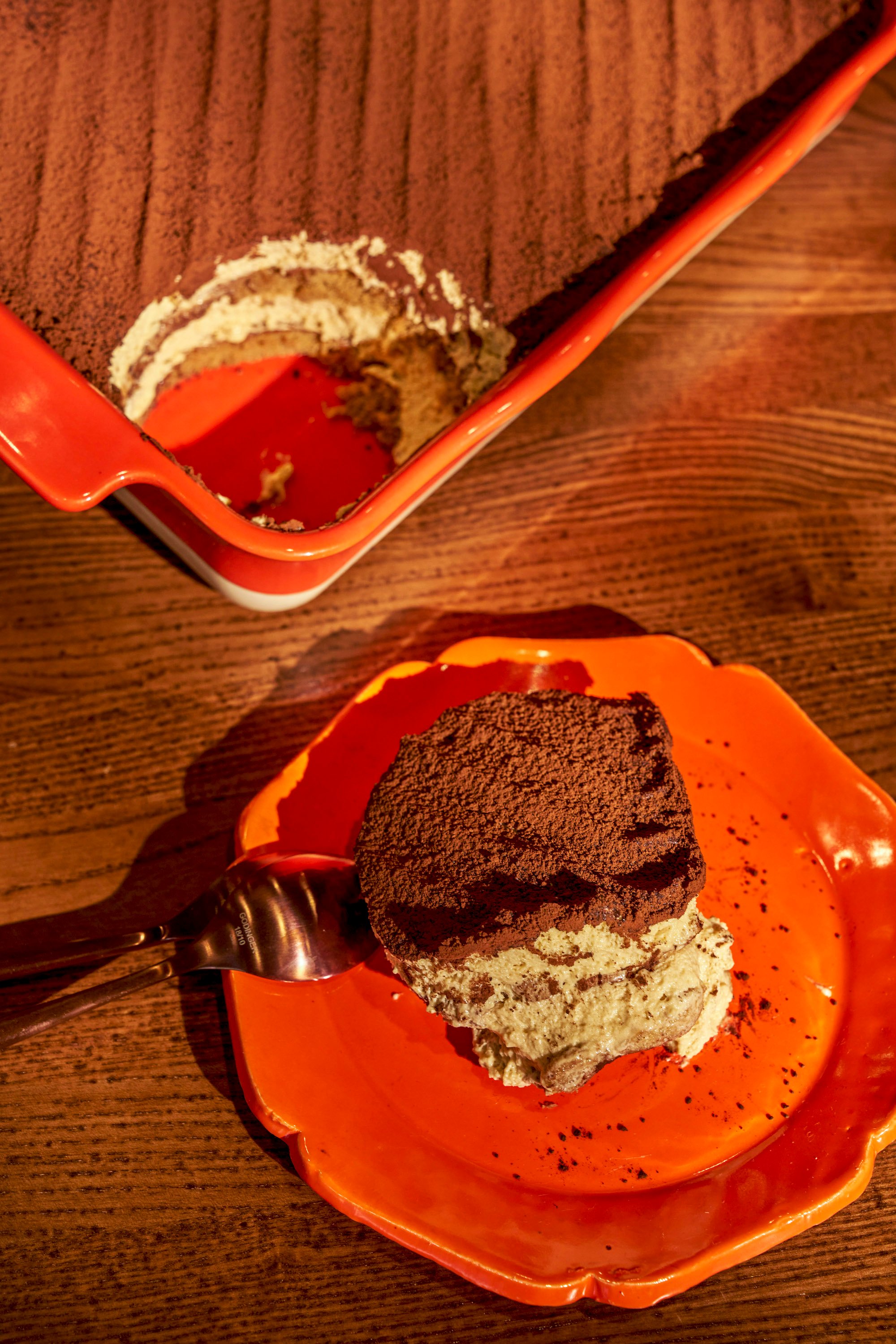
“I wore a glucose monitor the last two weeks. I’m like let me see when I eat all of these carbs, what happens to me? I had no glucose spikes, felt really good afterwards,” says Hellrigl, who describes herself as “gluten” sensitive. In fact, the menu is full of unexpected gluten-free dishes, including veal Milanese and a tiramisu using lady fingers baked in-house using locally milled buckwheat flour.
Dinner brings specialties like pansotti, a wild greens ravioli with walnut sauce from Liguria, as well as Hellrigl’s dad’s recipe for salmon tartare with sundried tomatoes and marinated eggplant. Hellrigl opts for wild king salmon from Lummi Island in the Pacific Northwest. It’s a pricier option that most restaurants wouldn’t choose, she notes, but “I’d rather find a way to make it happen and give you access to it then settle for something that I just don’t think is going to bring you the nutrients that you deserve.”
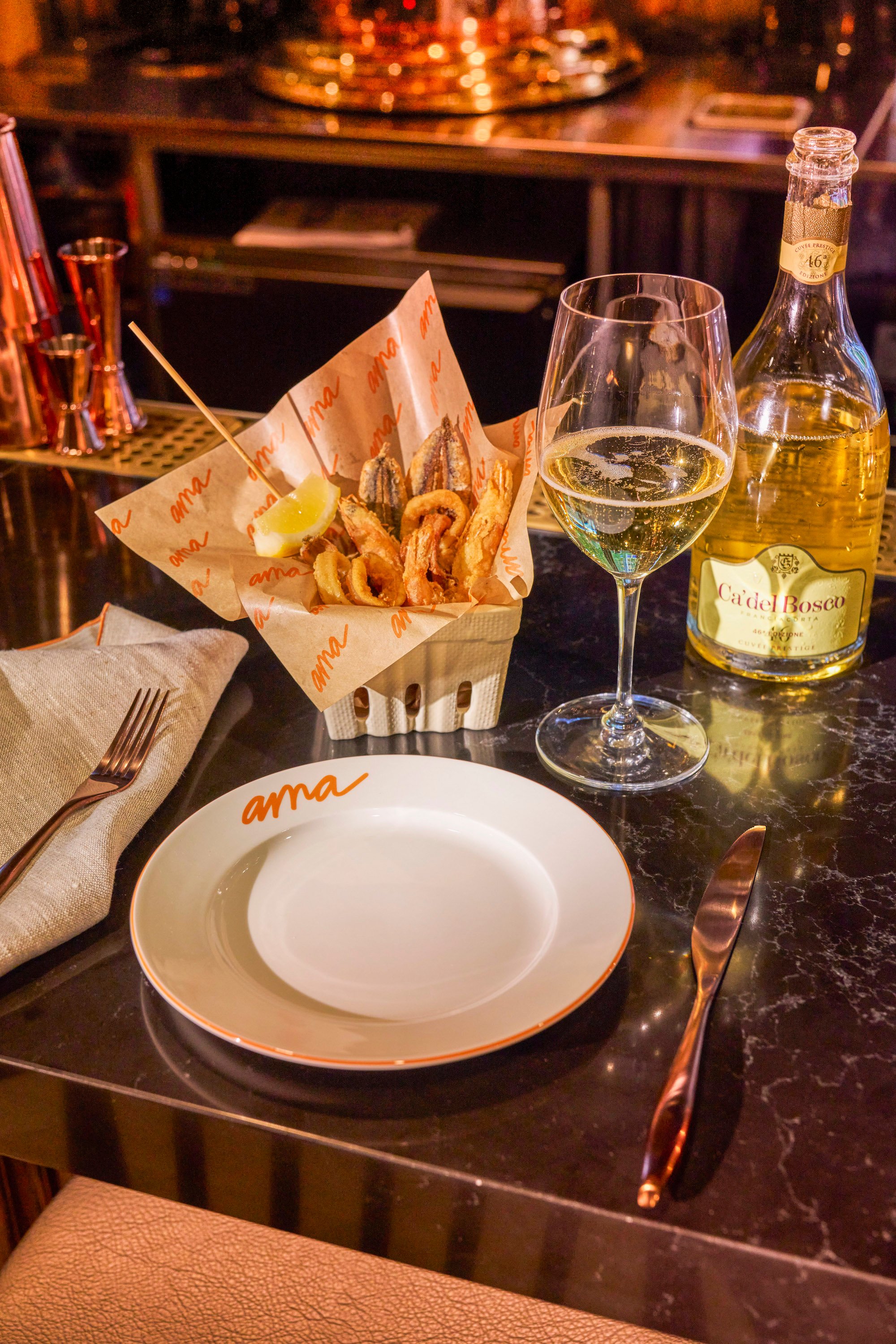
Fritto misto channels an unpretentious beach club in Nervi, Liguria that Hellrigl and Wilder like to visit, where you can sit on the rocks with a glass of pigato, a native white wine which will also be on the menu. The kitchen doesn’t have a fryer, but will shallow fry the seafood in olive oil.
Wilder, an owner in Chaplin’s and Zeppelin, is taking an “old-world, Italian apothecary” approach to cocktails (mostly $14-$16) with housemade digestive bitters and no refined sugars. For his spritzes and negronis, he uses amari from the likes of local Don Ciccio & Figli over global brands like Campari or Aperol in his lineup of spritzes and negronis, in order to avoid artificial dyes. Only a $45 vintage negroni uses Campari from the 1980s “when it was made properly.”
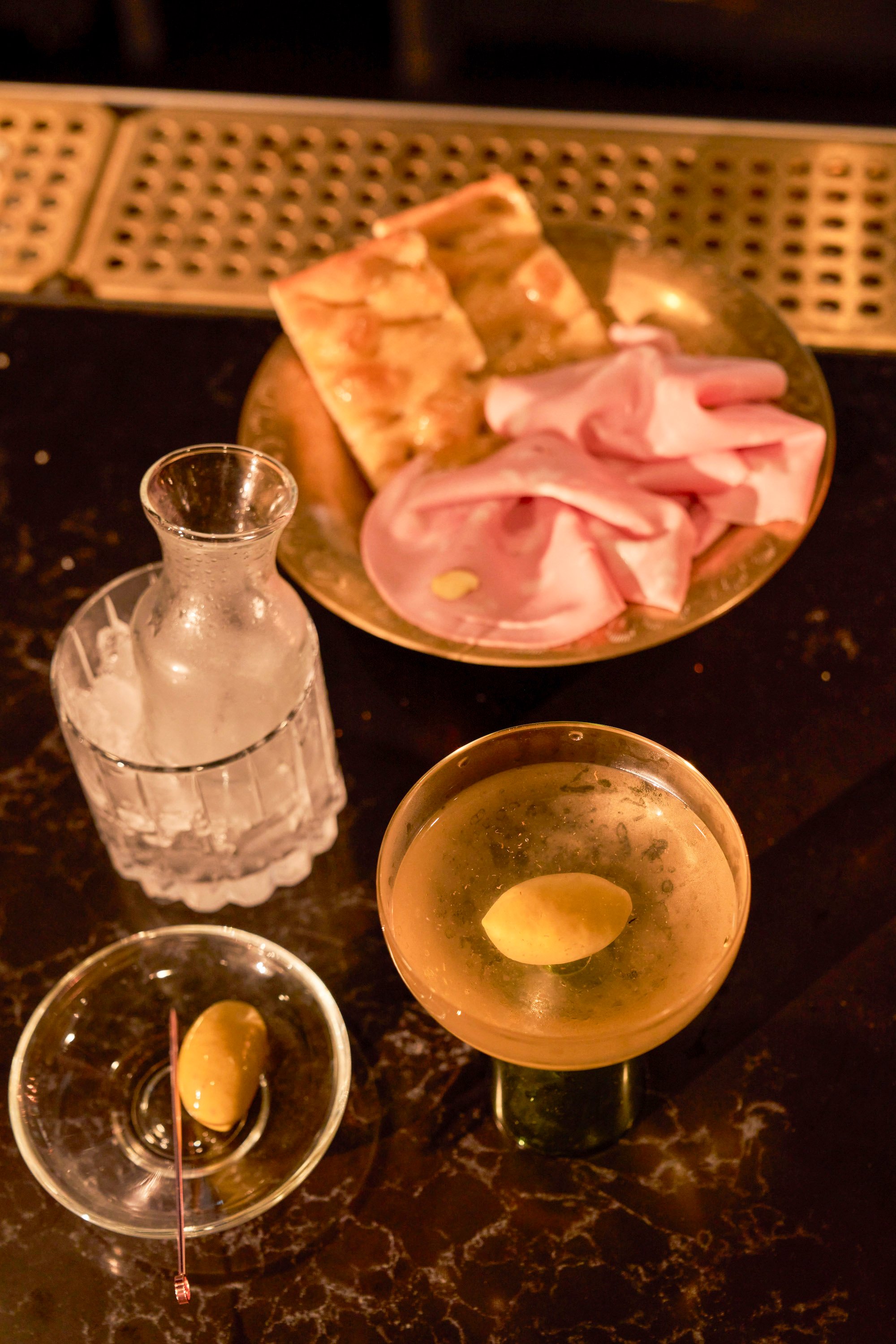
The bar is full of nifty gadgets like a high-pressure “pistola” soda gun for spritzes and a special machine that carbonates and freezes at the same time for fizzy, frozen white peach bellinis and more spritzes. Meanwhile, Wilder’s martini comes with olive wood smoke. “When you’re in Liguria and you’re driving along the coast, they’re usually trimming their olive branches and they’re burning them, so you smell his really, really intense aroma of burning olive,” he explains.
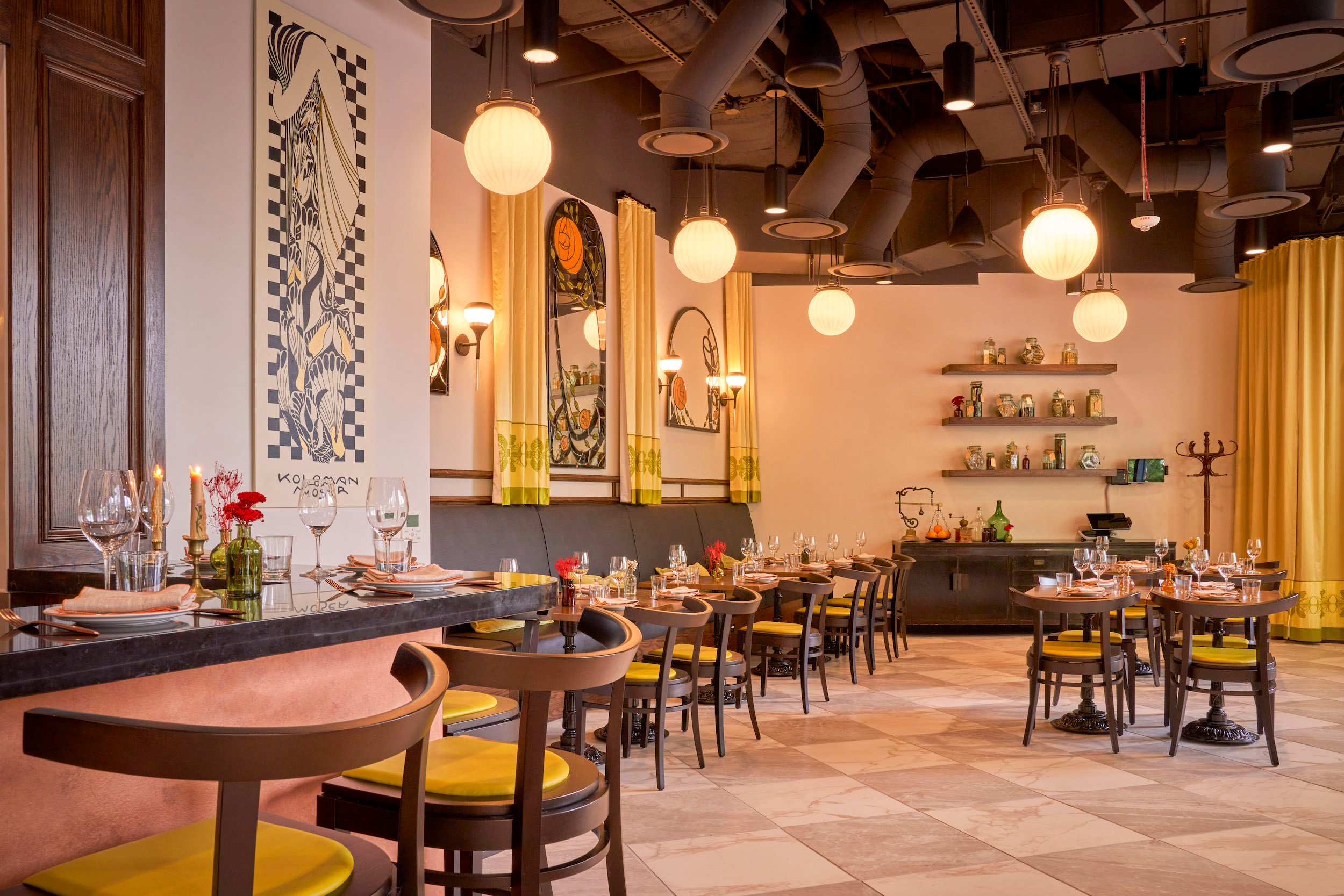
Hellrigl and Wilder’s wellness-minded approach also goes beyond the food and drinks, whether it’s providing health benefits for staff or cleaning the restaurant with non-toxic cleaners. They even installed a $30,000 water filtration system for the restaurant: “Why would I spend so much time buying organic vegetables and then just washing them in [DC tap water]?,” Hellrigl says. They’ve also gone to extremes to find a to-go coffee cup that “doesn’t instantly release a bunch of microplastics into your drink,” Wilder says, and they avoid single-use plastic containers.
“It takes a lot of research. It takes a lot of questioning. It takes a lot of people being like, ‘Why don’t you just do it the easier way?'” Hellrigl says. “I don’t know. I feel like I just want to be in one restaurant that I can just know that I’m doing my best to take care of you.”
Ama. 885 New Jersey Ave., SE.

